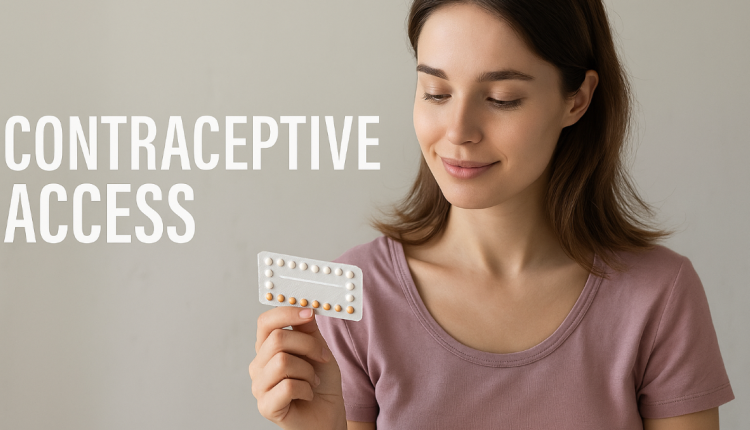In the pursuit of gender equality and women’s empowerment, access to contraception stands as a fundamental right and a cornerstone of women’s health. Beyond its role in family planning, contraception empowers women to make informed decisions about their bodies, careers, and futures. Despite global advancements, significant barriers persist, hindering many women from accessing the contraceptive methods they need. This article delves into the multifaceted impact of contraception on women’s health and autonomy, the challenges faced in ensuring universal access, and the imperative steps needed to overcome these obstacles.
The Significance of Contraceptive Access
Contraception is more than a tool for preventing pregnancy; it is a means of granting women control over their reproductive health, thereby influencing various aspects of their lives:
- Health Benefits: Access to contraception reduces the risk of unintended pregnancies, which can lead to unsafe abortions and maternal mortality. It allows for spacing between births, contributing to better health outcomes for both mothers and children.
- Educational and Economic Opportunities: When women can plan their pregnancies, they are more likely to pursue education and participate in the workforce, leading to economic empowerment and societal advancement.
- Autonomy and Empowerment: The ability to decide if and when to have children enhances women’s autonomy, enabling them to make choices aligned with their personal and professional aspirations.
Global Disparities in Contraceptive Access
While strides have been made in improving contraceptive access worldwide, disparities remain stark:
- Developing Regions: In many parts of Africa, Asia, and Latin America, cultural, religious, and infrastructural barriers limit access to contraception. For instance, contraceptive prevalence in Africa remains low, with only about 25% of women using modern methods.
- Adolescents and Unmarried Women: Societal norms and stigma often restrict young and unmarried women from obtaining contraceptives, despite their need for reproductive health services.
- Marginalized Communities: Women in marginalized communities, including those with low income or limited education, often face additional challenges in accessing contraceptive services due to financial constraints and lack of information.
Barriers to Contraceptive Access
Several factors contribute to the ongoing challenges in ensuring universal contraceptive access:
- Legislative and Policy Restrictions: In some regions, laws and policies restrict the availability of certain contraceptive methods or limit access based on age or marital status.
- Cultural and Religious Opposition: Deep-seated cultural beliefs and religious doctrines can discourage contraceptive use, creating societal pressure against women seeking these services.
- Healthcare System Limitations: Inadequate healthcare infrastructure, lack of trained providers, and insufficient supply chains hinder the consistent availability of contraceptives.
- Misinformation and Lack of Education: Myths and misconceptions about contraceptive methods can deter women from using them, highlighting the need for comprehensive sexual education.
Strategies for Enhancing Contraceptive Access
Addressing these challenges requires a multifaceted approach:
- Policy Reform: Governments must enact and enforce policies that guarantee access to a full range of contraceptive methods for all women, regardless of age or marital status.
- Community Engagement: Collaborating with community leaders and organizations can help shift cultural norms and reduce stigma associated with contraceptive use.
- Healthcare System Strengthening: Investing in healthcare infrastructure, training providers, and ensuring a reliable supply of contraceptives are essential steps toward improving access.
- Comprehensive Sexual Education: Implementing education programs that provide accurate information about reproductive health and contraception can empower women to make informed choices.
Conclusion
Contraceptive access is a pivotal element in advancing women’s health, autonomy, and equality. By addressing the multifaceted barriers that hinder access and implementing comprehensive strategies, societies can empower women to take control of their reproductive health, leading to broader social and economic benefits. Ensuring that every woman has the means to make informed decisions about her body is not only a matter of health but also a fundamental human right.


